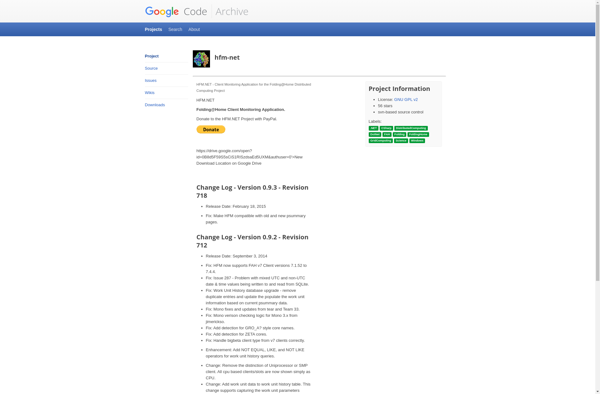PiCloud
PiCloud is a platform that provides on-demand access to a scalable cloud computing infrastructure for running Python code and applications. It aims to make cloud computing more accessible for scientific computing and data analysis.
PiCloud: On-Demand Cloud Computing for Python
Access scalable cloud infrastructure for running Python code and applications, ideal for scientific computing and data analysis with PiCloud
What is PiCloud?
PiCloud is a platform that provides on-demand access to a scalable cloud computing infrastructure for running Python code and applications. It aims to make cloud computing more accessible for scientific computing and data analysis.
Some key features of PiCloud include:
- Automated parallelization and distribution of Python code across a cluster of machines
- A simple API for deploying Python functions and apps to the cloud
- Integration with common scientific Python stacks like NumPy and SciPy
- Flexible pricing models based on usage, including free tiers for low usage
- Web-based computing with IPython notebooks
- Command line tools for deploying from a local dev environment
- PiCloud is well suited for data-intensive or computationally demanding Python workloads in fields like bioinformatics, machine learning, finance, physics, imaging etc.
- It aims to simplify cloud computing infrastructure so data scientists and analysts can focus on their code and algorithms rather than infrastructure.
PiCloud Features
Features
- On-demand access to scalable cloud computing infrastructure
- Running Python code and applications
- Designed for scientific computing and data analysis
- Supports parallel and distributed computing
- Automatic scaling of resources based on workload
- Easy integration with popular Python libraries and tools
- Managed infrastructure with automatic updates and maintenance
Pricing
- Pay-As-You-Go
Pros
Simplifies cloud computing for scientific and data-intensive tasks
Scalable and flexible to handle varying workloads
Reduces the need for infrastructure management
Integrates well with the Python ecosystem
Provides a user-friendly interface and API
Cons
Limited to Python programming language
May be more expensive than self-managed cloud solutions for certain use cases
Potential vendor lock-in with the PiCloud platform
Official Links
Reviews & Ratings
Login to ReviewThe Best PiCloud Alternatives
Top Ai Tools & Services and Cloud Computing and other similar apps like PiCloud
Here are some alternatives to PiCloud:
Suggest an alternative ❐Folding@home
Folding@home is a distributed computing project launched in 2000 by Vijay Pande and colleagues at Stanford University. It harnesses the unused processing power of personal computers owned by volunteers to simulate protein folding, computationally intensive molecular dynamics simulations of protein folding and misfolding.The simulations run when a person's computer would...

BOINC
BOINC (Berkeley Open Infrastructure for Network Computing) is an open source software platform for distributed computing, which utilizes the unused processing power of personal computers owned by volunteers. It allows ordinary people to donate their spare computing power to help scientists solve important research problems in various fields such as...

ClusterKnoppix
ClusterKnoppix is a Linux distribution based on Knoppix that is specifically designed for setting up high availability and computing clusters. It includes the following key features:Easy cluster setup with automated configuration tools for common cluster software like OpenMPI, LAM/MPI, and more.Support for setting up high availability (HA) clusters with redundant...
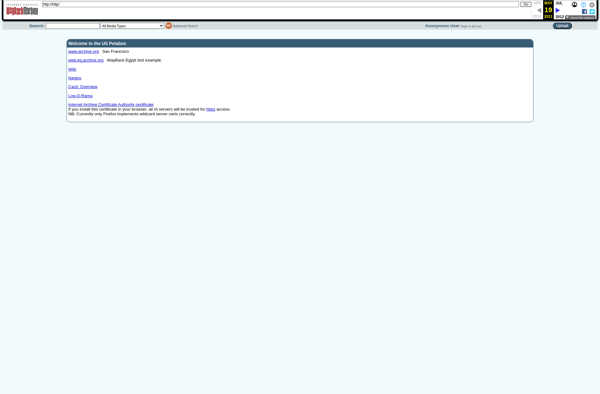
CryptoBullions Folding Pool
CryptoBullions Folding Pool is a cryptocurrency mining pool service that utilizes the computing power of users' devices to help advance medical and scientific research through the Folding@home distributed computing project. Folding@home uses spare computing resources to simulate protein folding, computations that assist in developing new therapies for diseases like cancer,...
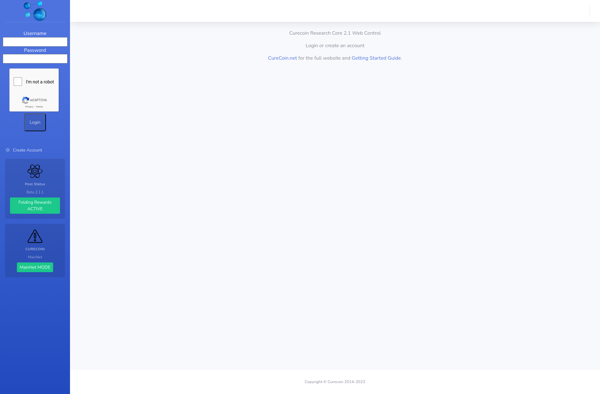
Charity Engine
Charity Engine is a user-friendly, cloud-based fundraising and donor management software designed specifically to help nonprofits and charities operate more efficiently and raise more funds. It provides an all-in-one platform to connect with donors, manage fundraising campaigns, accept donations online, communicate with supporters via email and social media, track results,...

Apache Mesos
Apache Mesos is an open source cluster manager that provides efficient resource isolation and sharing across distributed applications or frameworks. It sits between the application layer and the operating system on a distributed system, and makes it easier to deploy and manage applications in large-scale clustered environments.Some key features of...
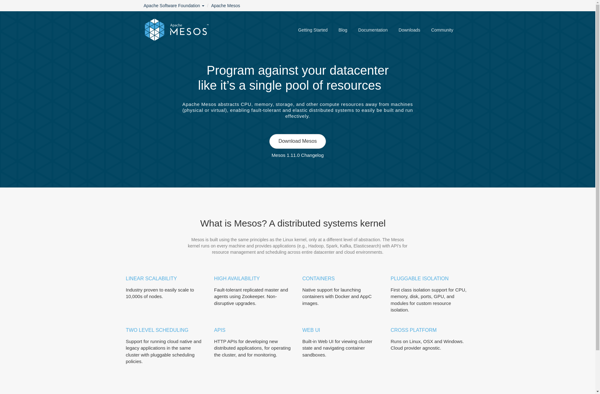
Quantum Moves
Quantum Moves is an open-source software package for designing quantum control experiments. It allows researchers and students to construct pulse sequences that manipulate atomic and molecular systems on quantum computers or quantum simulators.Some key features of Quantum Moves include:Graphical user interface for building pulse sequences by dragging and dropping quantum...

Foldit
Foldit is an online multiplayer video game created by the University of Washington Center for Game Science in 2008. The purpose of the game is to optimize the structure of proteins by having players manually manipulate the structure to find the most efficient folded configuration.In the game, players are presented...
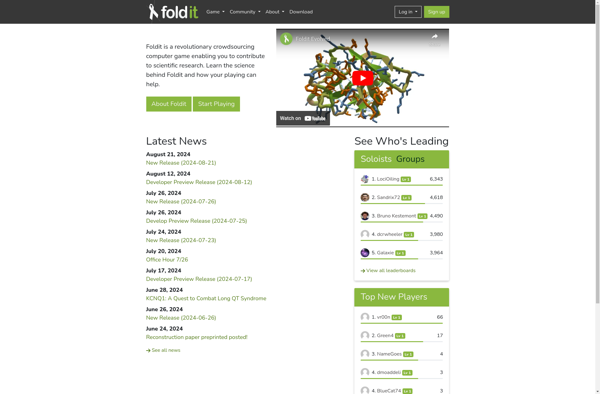
PelicanHPC
PelicanHPC is an open-source workload manager and resource manager designed for high performance computing (HPC) clusters. It provides sophisticated scheduling algorithms to optimize job throughput and resource utilization across complex HPC workloads.Key features of PelicanHPC include:Advanced scheduler supporting backfill, fairshare, and priority based algorithmsIntegrated node, job, and reservation monitoringSupport for...
JPPF
JPPF is an open source distributed computing framework written in Java. It provides a simple API and software components that enable developers to parallelize execution of tasks across multiple machines, cores and clusters.Some key capabilities and benefits of JPPF include:Automatic partitioning and distribution of tasks across a network of computing...

GridRepublic
GridRepublic is a cloud computing platform designed for running high-performance, compute-intensive workloads. It works by aggregating spare computing capacity from edge devices and data centers into a unified resource pool.Some key features of GridRepublic include:On-demand access to cloud-based high-performance computing resources for running simulations, AI/ML workloads, rendering, financial modeling, and...

Progress Thru Processors
Progress Thru Processors is a low-code application development platform designed to help organizations quickly create business applications. With a visual, drag-and-drop interface, Progress Thru Processors enables developers and non-developers alike to build web and mobile apps faster with minimal hand-coding required.Key features and capabilities include:Intuitive visual development environment for assembling...
HFM-NET
HFM-NET is an open source financial corporate performance management (CPM) application built on the .NET platform. It provides capabilities for financial consolidation, planning, reporting and analytics.Key features of HFM-NET include:Multi-GAAP and multi-currency consolidationWorkflow and task managementFinancial and management reportingBudgeting and forecastingAnalytics and dashboardsHFM-NET offers similar functionality to commercial solutions like...
